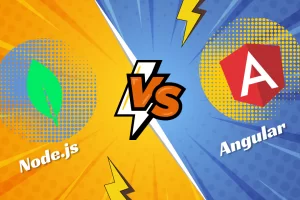In the ever-evolving landscape of software development, businesses often find themselves at a crossroads when it comes to leveraging specialized expertise. A strategic move that has gained prominence is the outsourcing of Node.js development services. Renowned for its scalability and efficiency in building robust applications, Node.js demands a specialized skill set that may not always be readily available in-house. Navigating the intricacies of outsourcing Node.js development becomes pivotal, requiring a thoughtful approach to ensure a seamless collaboration with development teams.
Understanding the Node.js landscape is foundational to making informed decisions when venturing into outsourcing. The technology’s significance in modern web development cannot be overstated, making it crucial for businesses to grasp its capabilities and potential applications. As organizations consider outsourcing Node.js development, having a solid comprehension of the technology sets the stage for effectively communicating project requirements and expectations to potential partners.
Identifying the specific development needs of a project is the initial stepping stone in the outsourcing journey. A meticulous assessment of the project’s scope, desired features, and anticipated outcomes is essential for creating a comprehensive project brief. When outsourcing Node.js development, a well-defined project brief serves as a roadmap, aiding potential partners in tailoring their proposals to precisely meet the client’s needs. This proactive approach not only streamlines the selection process but also lays the groundwork for a successful and collaborative outsourcing experience.
Understanding the Node.js Landscape
Unveiling Node.js Architecture:
Before delving into the outsourcing realm, it’s essential to unravel the architecture that makes Node.js a powerhouse in modern web development. Built on the V8 JavaScript runtime, Node.js employs an event-driven model with asynchronous I/O. This distinctive architecture allows developers to create applications that are not only scalable but also exhibit high performance.Handling Concurrent Connections:
Node.js excels in managing concurrent connections, a critical feature for applications that demand real-time interaction. Its non-blocking, event-driven nature ensures that the server efficiently processes multiple requests simultaneously, enhancing the overall responsiveness of applications. This capability makes Node.js particularly well-suited for scenarios where quick and simultaneous interactions with numerous users are crucial.The Role of the Node Package Manager (NPM):
Central to Node.js’s success is the Node Package Manager (NPM), a robust package manager for Node.js modules. NPM facilitates seamless collaboration and code-sharing among developers globally. The extensive repository of modules and libraries available through NPM empowers developers to expedite the development process by leveraging pre-built solutions. This not only enhances productivity but also contributes to maintaining high code quality.Embracing Node.js Flexibility:
As businesses explore the option of Outsourcing Node.js Development, recognizing the inherent flexibility and scalability of Node.js is paramount. Its capacity to efficiently handle a large number of simultaneous connections, coupled with a vast ecosystem of modules, positions Node.js as a strategic choice for projects of various scales. Whether it’s a small-scale application or a complex enterprise-level solution, Node.js offers the flexibility needed to adapt to diverse development requirements.
By comprehensively understanding these facets of the Node.js landscape, businesses can approach the outsourcing process with a solid foundation. This knowledge not only informs decision-making but also empowers businesses to choose outsourcing partners that align with the unique demands and capabilities of Node.js development.
Also Read: How to Install Bootstrap 5 in Laravel 10?
Identifying Your Development Needs
Project Scope and Objectives:
The initial step in the outsourcing journey involves a thorough examination of the project’s scope and objectives. Clearly define the functionalities, features, and goals your Node.js project aims to achieve. This clarity serves as the foundation for effective communication with potential outsourcing partners and ensures that they have a comprehensive understanding of the project’s intricacies.Technical Requirements and Specifications:
Delve into the technical aspects of your project by outlining specific requirements and specifications. Identify the technologies, frameworks, and integrations that your Node.js application will need. Providing a detailed technical overview when Outsourcing Node.js Development ensures that potential partners can assess their expertise and align their capabilities with your project’s technical demands.Project Timeline and Milestones:
Establish a realistic project timeline with clear milestones to track progress. Define key deliverables and deadlines to ensure that the outsourcing engagement stays on track. When communicating your development needs for Outsourcing Node.js Development, a well-defined timeline sets expectations and helps potential partners evaluate their ability to meet your project’s deadlines.Budgetary Considerations:
Transparently communicate your budget constraints and considerations. Define the financial parameters for the project, including development costs, potential additional expenses, and payment structures. Clearly articulating your budgetary requirements when Outsourcing Node.js Development allows potential partners to provide proposals that align with your financial constraints.Scalability and Future Requirements:
Consider the scalability of your project and any potential future requirements. A successful outsourcing engagement anticipates future needs and ensures that the chosen development partner can accommodate scalability and handle future enhancements. Clearly outlining scalability expectations when Outsourcing Node.js Development helps in selecting partners who can grow with your project over time.Collaborative Work Environment:
Express your preferences for a collaborative work environment. Whether you favor regular updates, interactive feedback sessions, or a specific communication channel, defining your collaboration expectations is crucial. This aspect is vital when Outsourcing Node.js Development, as it establishes a framework for effective communication and ensures that you stay closely involved throughout the development process.
Researching Potential Partners
Experience and Expertise:
Evaluate potential outsourcing partners based on their experience and expertise in Node.js development. Look for a track record of successfully completed projects, especially those similar to your requirements. Assessing their experience provides insights into their capabilities and the likelihood of delivering a high-quality solution when Outsourcing Node.js Development.Client Testimonials and References:
Explore client testimonials and seek references from previous clients. Hearing about the experiences of others who have worked with the outsourcing partner can offer valuable insights into their communication, reliability, and overall performance. Testimonials and references provide a real-world perspective on what you can expect when engaging in Outsourcing Node.js Development.Technical Proficiency:
Dive into the technical proficiency of potential partners. Assess their familiarity with Node.js, their proficiency in related technologies, and their ability to adapt to your project’s specific technical requirements. An in-depth evaluation of technical capabilities is crucial when Outsourcing Node.js Development, ensuring that the selected partner can effectively contribute to the success of your project.Communication and Collaboration Style:
Evaluate the communication and collaboration style of potential partners. A collaborative and transparent approach is essential for successful outsourcing. Assess how they handle communication, provide updates, and respond to queries. Choosing a partner with a communication style that aligns with your preferences is vital when Outsourcing Node.js Development to foster effective collaboration.Project Management and Workflow:
Understand the project management and workflow processes of potential partners. A well-organized and efficient workflow is crucial for meeting project milestones and deadlines. Inquiring about their project management methodologies and tools provides clarity on how they plan, execute, and deliver projects when Outsourcing Node.js Development.
By thoroughly researching and evaluating potential partners based on these criteria, you can make informed decisions when Outsourcing Node.js Development. This comprehensive approach lays the groundwork for a successful collaboration and increases the likelihood of achieving your project goals.
Also Read: How to install Laravel for Visual Studio Code
Evaluating Technical Proficiency
Node.js Expertise:
Assess the outsourcing partner’s proficiency in Node.js development by examining their experience with the technology. Look for a demonstrated track record of successful Node.js projects, emphasizing the complexity and scale similar to your requirements. A partner with strong Node.js expertise is better equipped to navigate the intricacies of your project when Outsourcing Node.js Development.Knowledge of Related Technologies:
Evaluate the partner’s knowledge of related technologies that complement Node.js. This includes databases, front-end frameworks, and other tools commonly used in Node.js development. A well-rounded technical proficiency ensures that the outsourcing partner can address the broader aspects of your project’s technical requirements effectively.Adaptability to Project-Specific Requirements:
Assess the partner’s adaptability to project-specific requirements. Your Node.js project may have unique features or integrations, and a proficient outsourcing partner should showcase the ability to tailor their approach to meet these specific needs. This adaptability is crucial for a successful collaboration when Outsourcing Node.js Development.Code Quality and Best Practices:
Examine the outsourcing partner’s commitment to code quality and adherence to best practices in Node.js development. A thorough review of their coding standards, documentation practices, and use of design patterns provides insights into the quality of the code they deliver. Emphasizing code quality ensures the longevity and maintainability of your Node.js application.Problem-Solving and Troubleshooting Skills:
Evaluate the partner’s problem-solving and troubleshooting skills. The ability to diagnose issues, implement effective solutions, and optimize performance is critical in Node.js development. Assess how potential partners approach problem-solving scenarios and their proactive measures to address challenges that may arise during the development process.
By thoroughly evaluating the technical proficiency of potential partners in these key areas, you can make informed decisions when Outsourcing Node.js Development. This comprehensive assessment ensures that the selected partner not only meets your current technical requirements but is also well-equipped to handle the evolving needs of your Node.js project.
Embracing a Collaborative Approach
Open Communication Channels:
Foster a collaborative environment by establishing open and transparent communication channels with your outsourcing partner. Emphasize the importance of regular updates, progress reports, and the need for a responsive communication structure. A collaborative approach relies on effective and ongoing communication to ensure that both parties are aligned and informed throughout the Node.js Development Outsourcing journey.Interactive Feedback Sessions:
Encourage interactive feedback sessions as a cornerstone of collaboration. Provide constructive feedback and welcome insights from your outsourcing partner. This two-way communication fosters a culture of continuous improvement, allowing both parties to refine processes, address concerns promptly, and enhance the overall quality of the Node.js development project.Shared Project Management Tools:
Utilize shared project management tools to enhance collaboration and visibility into project progress. Platforms such as Jira, Trello, or Asana can facilitate seamless collaboration by providing a centralized space for task tracking, milestone management, and document sharing. A shared toolset contributes to a collaborative and organized workflow during Node.js Development Outsourcing.Cross-Functional Team Engagement:
Embrace cross-functional team engagement to leverage the diverse skills and expertise within both your internal team and the outsourcing partner. Facilitate collaborative workshops, brainstorming sessions, and knowledge-sharing activities. This collaborative approach ensures that different perspectives contribute to innovative solutions and a well-rounded Node.js development project.Proactive Problem Solving:
Encourage a proactive approach to problem-solving within the collaborative framework. When challenges arise during Node.js Development Outsourcing, promote a culture of addressing issues promptly and collaboratively. Proactive problem-solving contributes to the overall efficiency of the development process and helps maintain a positive and collaborative working relationship.
By embracing these collaborative practices, businesses can cultivate a positive and productive environment when Outsourcing Node.js Development. This collaborative approach not only enhances the quality of the development process but also strengthens the partnership between the internal team and the outsourcing provider, fostering a successful Node.js development project.
Monitoring and Quality Assurance
Implementing Robust Monitoring Mechanisms:
Establish robust monitoring mechanisms to track the progress of your Node.js development project. Utilize project management tools, version control systems, and performance monitoring software to gain real-time insights into the development process. This proactive approach ensures that any deviations from the project plan can be identified early, allowing for timely adjustments and maintaining project timelines.Regular Progress Assessments:
Conduct regular progress assessments to evaluate the alignment of the development work with project milestones. Schedule checkpoints at key stages of the project to review completed tasks, assess code quality, and ensure that the project is progressing according to the predefined schedule. Regular assessments contribute to a proactive and informed approach to Node.js Development Outsourcing.Continuous Code Review:
Prioritize continuous code review as part of the quality assurance process. Regularly assess the codebase for adherence to coding standards, best practices, and potential vulnerabilities. Implementing thorough code reviews ensures that the delivered code is of high quality, maintainable, and aligns with your project’s specifications during the Node.js Development Outsourcing lifecycle.Automated Testing Procedures:
Integrate automated testing procedures into the development workflow to validate the functionality and performance of your Node.js application. Automated tests, including unit tests, integration tests, and end-to-end tests, contribute to the early detection of bugs and help maintain the overall quality of the codebase. This systematic testing approach is integral to the quality assurance process in Node.js Development Outsourcing.Client Involvement in Testing:
Facilitate client involvement in the testing phase to ensure that the developed Node.js application meets their expectations. Encourage user acceptance testing (UAT) and provide clients with opportunities to interact with the application before its final release. Client involvement in testing enhances the likelihood of delivering a product that aligns with their requirements during Node.js Development Outsourcing.
By incorporating these monitoring and quality assurance practices into the Node.js Development Outsourcing process, businesses can actively manage the development lifecycle, uphold code quality, and deliver a high-performing Node.js application that meets both technical and business requirements.
Also Read: Pros and Cons of Node.js Web App Development
Conclusion
In conclusion, embarking on the journey of Outsourcing Node.js Development in the USA requires a strategic and well-informed approach. Understanding the dynamic Node.js landscape lays the groundwork for making informed decisions throughout the outsourcing process. By identifying specific development needs, from project scope to budgetary considerations, businesses can effectively communicate their requirements to potential outsourcing partners.
The process of researching potential partners is a critical phase that involves evaluating experience, technical proficiency, and the ability to collaborate effectively. Selecting a partner with a proven track record and the right expertise is instrumental in ensuring the success of the Node.js development project. Once a partner is chosen, embracing a collaborative approach becomes paramount. Open communication, interactive feedback sessions, and shared project management tools foster a positive and productive working relationship between the internal team and the outsourcing provider.
Monitoring and ensuring quality throughout the development lifecycle are essential for delivering a successful Node.js application. Implementing robust monitoring mechanisms, regular progress assessments, and comprehensive quality assurance practices contribute to the overall success of the outsourcing engagement.
In essence, Outsourcing Node.js Development in the USA is not just a transactional engagement but a collaborative journey. With careful planning, effective communication, and a commitment to quality, businesses can navigate the outsourcing landscape with confidence. The key lies in finding a strategic partner who not only understands the intricacies of Node.js development but also shares the vision for a successful and collaborative project.















